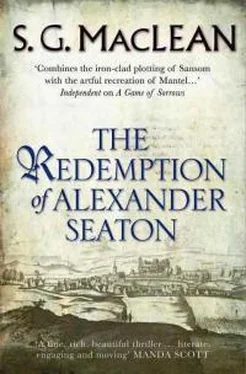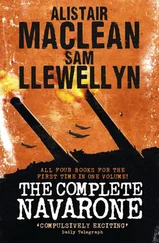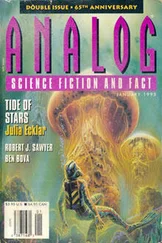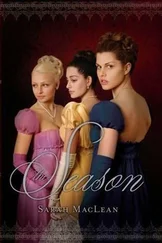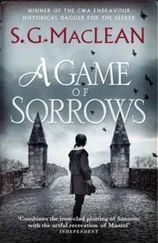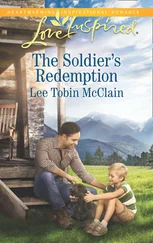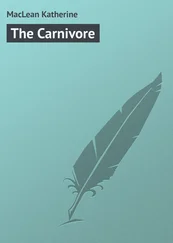‘No. She went this way.’ He was indicating the line of the burn as it went to meet the mouth of the Dee and, recovering, he pulled me after him in the direction of Shore Brae: she was headed for the harbour.
The harbour was never silent, never at rest – it was the heart and lungs of the burgh. Whereas before our running had sent noise ricocheting into the silent hum of the night-time town, our falling steps – and those of Mary Dawson ahead of us – fell into a rhythm already gently approaching from the sea. The putrid smell of the trades was now being lost, overwhelmed, by the sheer salt and seaweed smell of the quay head. There were lanterns lit along the quayside, and the shore porters were busy at their work. A huddle of merchants deep in conference with the ship’s master was animated by the lantern light. The group looked up at our approach.
‘It seems you have some tardy passengers, captain. They are all out winded to get here in time.’
Another merchant peered at us. ‘Is it not William Cargill? What are you doing here at this hour of the night, Mr Cargill? Are you making ship for the Baltic, then? Will you not be needing my bill after all?’
William laughed and responded as casually as he could, ‘No, it is since my wife has been with child it is safer for me to walk abroad at night than to venture to my own bed. The humour that is on her brings tears the one minute and scolding the next.’
The men laughed. William went over to the captain and drew him aside a moment for some private speech. I envied him his facility of going through the world without causing offence. The merchants went to see to the loading of their goods and I remained in the shadows, watching for a sight of Mary Dawson. William came back over to me presently. ‘The captain takes six passengers as well as his cargo tonight, in less than an hour. They sail for Danzig. He has two students, two merchants, a master mason and a woman who calls herself a widow. He says she is no widow such as he has seen before and he is certain her testimonials are forged, but her money is not and he will let her aboard without over much questioning. He says she is a young woman, of medium height, shapely, with hair the colour of burnished copper, and eyes the same shade. Is this the woman you seek?’
I nodded slowly. ‘Her name is Mary Dawson. She and her sister are – were – whores of Banff. I would swear they were the last faces Patrick Davidson saw before he departed this world. Their occupation has been long known in Banff, but tolerated – they were discreet enough. Yet two days ago Janet Dawson was driven from the bounds at the end of the hangman’s scourge, not to return on pain of death. I saw it with my own eyes. Before the town serjeant pulled her away, she repeated to me the words she said were the last spoken on this earth by Patrick Davidson: “James and the flowers”. I am certain it was the sisters who put Patrick Davidson in my schoolroom to die, and I can make very little of Janet’s report of his last words. I must talk with Mary Dawson before she leaves these shores. I cannot believe that this and her sister’s banishment from Banff do not have their cause in the murder of the apothecary’s apprentice.’
William took some coins from his pouch and bade me follow him. He walked to where the shore porters were and went to talk quietly to one of them, then another. It was the third man who finally showed some sign of knowing what he was being asked, and taking the coin from William motioned to us to follow him. Behind a large stack of English coals I found my quarry, cowering like a frightened dog. She tried to bolt again when she saw me, but this time I was too fast for her: I caught her by the arms and forced her back down.
‘Mary, you know me. Why do you run?’ Still she struggled, but I held her firm. ‘Mary, it is Alexander Seaton. You know me.’
At length, when she realised she could not release herself from my grip, she stopped struggling. She looked directly at me through defiant, and yet fearful eyes. ‘I know you, Mr Seaton, and I know you to have goodness in you, but you have not fallen far enough in this world for me to trust you. Let me go, for you will have nothing of me.’
‘A few words, Mary, that is all I ask, a few words.’
She looked suspiciously at William. ‘Who is he?’
‘A friend, no more.’
‘He has not been sent after me with you?’
I slowly loosened my grip on her arm. ‘What do you mean? Mary, I have not been sent after you. I never knew you were here until this night, not half an hour ago as you left Maisie Johnston’s house. You think I was sent here after you, to bring you back to Banff?’
She was rubbing her arm where I had gripped her, and let out a hollow laugh. ‘Back to Banff? I will never see Banff again all the days of this life, unless it is to hang from the gibbet or be drowned at the shore. You nor anyone else to come will ever be sent to bring me back, but I fear one might be sent to see to it that I do not.’
Now I understood her terror; it was some of that same creeping terror that had been coming over me these last hours, but in Mary Dawson it had taken such a hold that no one could reason with her, such was her certainty of some awful retribution. For what, I began to guess, but from whom I did not know. ‘Tell me what you know, Mary.’
She shook her head fiercely, like a madwoman lost in herself.
‘You have nothing to fear from me. I swear before God, I am not one of them.’ I had no earthly notion who this ‘them’ might be, but my oath seemed to calm her a little, although her lips remained tightly shut. I had to try another tack. ‘There is something your sister told me …’
Her eyes flashed up at me. ‘Janet? Where is she? Is she here in Aberdeen?’
I put my hand out to calm her, to let her down as gently as I might. ‘No. She is not here. I do not know where she is now. I last saw her three days ago. The hangman and the town serjeant were beating her from the bounds. They drove her out to the west, on the Cullen road.’
Mary’s eyes were still eager. ‘Then they do not have her? She is safe?’
‘As far as I can tell you, she is safe. I do not know where she is gone, but I know,’ I hesitated, but there was no good in keeping it from her, ‘I know she was bound never to return to Banff, on pain of death.’
These tidings did not seem to trouble Mary as I had expected them to. She was nodding slowly, smiling to herself. ‘Then she is safe. She will go to our cousin in Strathspey. She will be safe.’
‘Strathspey is a long journey, over hard terrain.’
Mary was not concerned. ‘She knows the country well. The last frosts are almost gone. She will make her way. She will be safe. May God keep her.’ I realised then that Mary Dawson had no expectation of ever seeing her sister again. She was silent in her thoughts and I let her be for a while, but I knew time was passing and that neither tide nor captain would wait, so neither could I.
‘What is it that drove you from Banff in such a way?’
She looked at me curiously. ‘You truly do not know?’
‘How could I know? I am not privy to the magistrates’ council.’
She almost snorted with contempt. ‘The magistrates’ council!’ And then, more softly, she said, ‘It was not the magistrates’ council, but the beggar chief that warned us to leave Banff. His warning is not to be taken lightly.’
‘The beggar chief? Lang Geordie? But why?’
She answered, and I knew I had guessed the thing right. ‘The apothecary’s apprentice – I never knew his name. We found him, Janet and I, at the bottom of Water Path. He was sick, near to death. It was us who set him at your desk.’ She looked up. ‘And they say you never saw him until he was gone?’
Читать дальше
